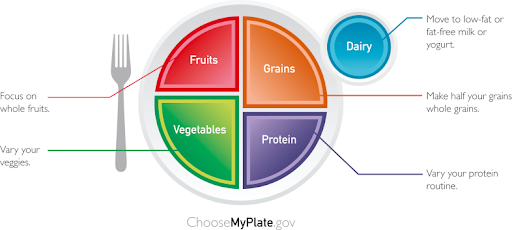The heart is an incredible organ. It continuously pumps blood throughout your body, supplying nutrients and oxygen to sustain life. This fist-sized organ circulates 2,000 gallons of blood 100,000 times per day at a rate of 5 to 6 quarts per minute.

Our heart uses the circulatory system to pump blood while it beats. Every organ in the body receives blood via elastic tubes known as vessels. The blood helps remove waste items from the body, such as carbon dioxide, from the tissues and delivers nutrients and fresh oxygen from the lungs to the body's tissues. Thus, it is essential for maintaining life and ensuring the well-being of every tissue in the body.
While consuming particular foods can increase your risk of developing heart disease, it can be challenging to change your dietary habits. However, you must adhere to heart-healthy diet guidelines, whether you have a history of unhealthy eating or simply wish to fine-tune your diet.
In this article, we will learn which foods to eat more of and which to limit in order to sustain a healthy heart.
What is a Heart-Healthy Diet?
Diet has a significant impact on the development of cardiovascular disease. Certain foods may affect blood pressure, cholesterol levels, triglyceride levels, and inflammation, all of which can increase the risk of heart disease.
Here are some diets that you should follow to improve your heart health.
The Mediterranean Diet
Mediterranean diet is the best option for maintaining a healthy heart. These are based on the eating habits of those who reside in nations that border the Mediterranean Sea.
Plant-based foods like beans, vegetables, fruits, whole grains, seafood, and good fats like olive oil and nuts are typically abundant in Mediterranean diets. These diets usually contain a few foods that have undergone extreme processing, such as red and processed meats and sugar.
According to research, people who eat Mediterranean style have considerably lower rates of heart disease and related deaths than those who eat in a Western-style manner.
Plant-Based Diet
Along with the Mediterranean diet, several plant-based diets, such as vegetarian and vegan diets, positively impact your heart and reduce the chance of developing heart disease. But not all plant-based diets are equally advantageous. Refined cereals, sugar-sweetened beverages, and highly processed snacks pose a greater risk of cardiovascular disease in plant-based diets.
A wholesome, plant-based diet requires planning, label reading, and self-discipline.
If you aim to follow a plant-based diet, may be advised to minimize animal products, added fats, oils, and processed carbs while consuming various fruits and vegetables. The main advantages for patients who choose to adopt a plant-based diet include the potential to take fewer medications to manage a range of chronic illnesses, lose weight, reduce their risk of developing cancer, and lessen their risk of dying from ischemic heart disease.
Incredible Foods for Your Heart
The cardiac diet encourages people to eat heart-healthy, anti-inflammatory foods to lower their risk of cardiovascular disease. Improve your heart health by eating right.
In reality, triglycerides, cholesterol, inflammation, and blood pressure are all risk factors for heart disease. Specific diets can affect these risk factors. Improve your heart's health with these healthy foods.
1. Green Leafy Vegetables
Kale, collard greens, spinach, and other leafy green vegetables are filled with vitamins, minerals, and antioxidants. Some good sources of vitamin K can help safeguard your arteries and promote healthy blood clotting.
Additionally, they contain significant dietary nitrate levels, which help lower blood pressure, lessen arterial stiffness, and enhance the performance of the cells lining blood vessels.
According to research, increasing your diet of green, leafy vegetables may lower your risk of heart disease by up to 16%.
2. Whole Grains
Refined carbs raise the risk of coronary heart disease. Several studies have shown that eating more whole grains can improve your heart health. According to research, consuming three additional servings of whole grains per day can lower the risk of heart disease by up to 22%.
Whole grains frequently used may include oats, brown rice, rye, quinoa, barley, and whole wheat.
Managing hypertension by consuming a diet high in plant-based foods, whole grains, low-fat dairy products, and sodium within acceptable ranges is possible.
3. Berries
Raspberries, strawberries, blueberries, and blackberries burst with vital elements essential for heart health. Antioxidants like anthocyanins, which guard against oxidative stress and inflammation that contribute to the onset of heart disease, are abundant in berries. According to studies, numerous heart disease risk factors can be decreased by consuming many berries.
4. Avocados
Avocados contain monounsaturated fats, which can decrease the chances of heart disease. Additionally, avocados are a great source of potassium, a crucial nutrient for maintaining a healthy heart. One single avocado has 975 milligrams of potassium, satisfying roughly 28% of your daily potassium needs.
5. Walnut
Micronutrients like magnesium, copper, manganese, and fiber are abundant in walnuts. Some tree nuts, notably walnuts, can help prevent cardiovascular disease. Some studies have discovered a link between regular consumption of nuts like walnuts and a lower risk of heart disease.
6. Oily Fishes
Fatty fish such as sardines, salmon, tuna, and mackerel are high in omega-3 fatty acids, which have been extensively studied for their heart-health advantages. Omega-3 fatty acids found in fatty fish may play a preventive function in the development of heart disease and may lower the incidence of cardiovascular disease (CVD) events and arrhythmias.
Long-term fish consumption has been linked to decreased levels of total cholesterol, blood triglycerides, fasting blood sugar, and systolic blood pressure. Fish oil supplements can be an option for those who do not like to eat seafood. Because supplementing with fish oil has been found to lower blood triglycerides, improve vascular function, and lower blood pressure.
7. Tomato
Tomatoes are a rich source of lycopene, a naturally occurring plant pigment with powerful antioxidant properties. Since oxidative damage and inflammation can contribute to heart disease, antioxidants counteract dangerous free radicals.
Blood lipids, blood pressure, and endothelial function improve with increased tomato product consumption and lycopene supplementation.
Higher HDL cholesterol levels can help keep your heart healthy and fight against heart disease and stroke by removing extra cholesterol and plaque from the arteries. Lycopene deficiency may increase the risk of heart attack and stroke.
The Heart-Healthy Diet Plan
According to nutrition research, a healthy diet includes eating lots of non-starchy vegetables, fruits, whole grains, and legumes and limiting the intake of nuts, fish, excess sugar and salt, lean meats, low-fat dairy products, and vegetable oil.
The total amount of food consumed also matters, and restricting calories is critical for avoiding overeating and weight gain.
A visual Diet Manual

Dietary guidelines offer three healthy eating patterns that contain variations on the broad ideas outlined.
1) The American healthy diet
2) The Mediterranean healthy diet
3) The Vegetarian healthy diet
The table below shows the diet-wise distribution of each component on the plate.
| |
Diet
(Based on 2000 calories) |
American Diet
(Based on 1800 calories) |
Mediterranean Diet
(Based on 1800 calories) |
Vegetarian Diet
(Based on 1800 calories ) |
| Grains |
6-8 servings |
6 ounces daily |
6 ounces daily |
6 ounces daily |
| Vegetables |
4-5 servings |
2.5 cups daily |
2.5 cups daily |
2.5 cups daily |
| Fruits |
4-5 servings |
2 cups daily |
2 cups daily |
1.5 cups daily |
| Nuts and seeds |
4-5 servings |
3 cups daily |
2 cups daily |
3 cups daily |
| Meat and Fish |
Less than 6 ounces |
2 Ounces daily |
2 Ounces daily |
2 Ounces daily |
| Fats and oils |
2-3 serving can use daily |
24 g Daily |
24 g Daily |
24 g Daily |
| Sugar |
Five servings can be used weekly |
Limit the intake |
Limit the intake |
Limit the intake |
Heart Health Tips
There are numerous easy ways to safeguard your cardiovascular system through dietary changes and lifestyle adjustments, whether you wish to support the treatment of a heart condition that is already present or lower your risk of acquiring heart disease.
The research supports these lifestyle recommendations for heart health.
Quit Smoking
No matter how long you've been smoking, quitting will improve your health. Smoking significantly increases the risk of heart disease and can aggravate symptoms. If you smoke, consider quitting.
Consume More Plant fiber
High-fiber diets are associated with better heart health and a lower risk of heart disease. These may include whole grains, fruits, vegetables, nuts, seeds, and high-fiber meals.
Exercise Regularly
Living a sedentary lifestyle may make you more susceptible to heart disease. If you can, try to move more and spend less time sitting down by taking regular walks or participating in other enjoyable forms of exercise. If you've never exercised before or haven't in a while, start slowly and work your way up.
Limit Salt Intake and Foods and Beverages with Added Sugar
Good heart health depends on managing your blood pressure, blood sugar, and cholesterol. Reducing your consumption of salty and packaged foods and replacing them with more freshly produced, home-cooked meals would benefit you in many ways. Furthermore, avoiding excessive amounts of sugar may help you achieve or maintain a healthy weight and prevent heart disease.
Conclusion
A nutritious and well-balanced diet is essential for preserving heart health. Consuming various fruits, vegetables, whole grains, and healthy fats will help maintain a healthy weight, lower cholesterol levels, and reduce inflammation. It's crucial to limit the consumption of processed foods, added sugars, and sodium to prevent heart disease.
Leading a healthy lifestyle can significantly support a strong and healthy heart. This lifestyle should include regular exercise, a balanced diet, stress management, and abstaining from tobacco and excessive alcohol consumption. Prioritizing cardiovascular health reduces the risk of cardiovascular illness, enhances overall well-being, and improves quality of life.